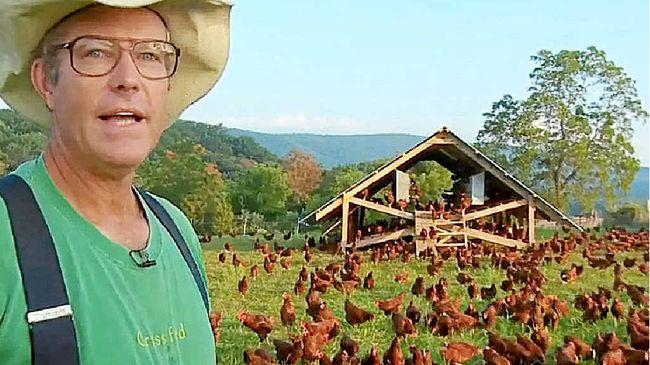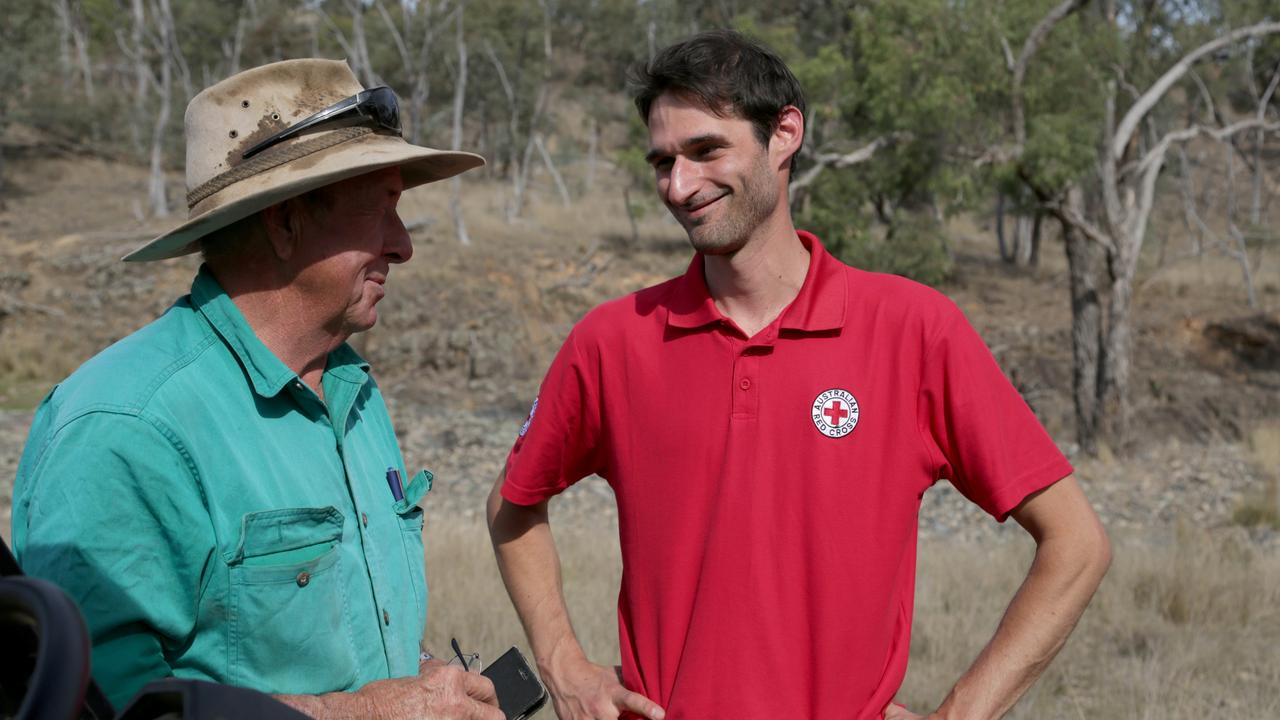US’s most innovative farmer shares his secrets
IN PADDOCKS around the globe Joel Salatin is regarded as one of agriculture’s genuine innovators.

IN PADDOCKS around the globe Joel Salatin is regarded as one of agriculture's genuine innovators.
He is an American farmer who has taken a 220ha degraded farm in Virginia to a profitable organic enterprise supplying pastured beef, pork, poultry and rabbits direct to 4000 families, 50 restaurants and 10 retail outlets.
This month he is in Australia talking to farmers and consumers about the future of primary production and how a willingness to link directly with consumers is critical for family and small-scale operations.
Queensland's Kym Kruse, from RegenAG, has played a crucial part in bringing the man Time Magazine described as "the world's most innovative farmer" Down Under.
Mr Kruse said it was a critical time for Australian agriculture and the methods Mr Salatin has used could help producers take advantage of a growing urban interest in food providence.
"Farming is the backbone of Australian communities," Mr Kruse said.
"Farmers are doing it tougher than they ever have before with rising input costs, declining fertility and market price pressure from supermarkets, not to mention extreme weather events, the wider impacts of climate change or the fact that most farmers are over 60 years old.
"This is a timely opportunity to catapult regional conversations forward on how we support and grow our local family farming economy and how we link our farmers with consumers."
Mr Salatin's story has inspired producers world-wide.
In 1961 when he took over the 220ha farm he said it wouldn't have supported the equivalent of one person's salary.
Today Mr Salatin said his farm generated $10,000 per acre in annual gross sale thanks to a layering of different species - beef cattle, pigs, turkeys, laying chickens, meat chickens, rabbit, lamb, ducks and egg-layer ducks - symbiotically and synergistically on the pasture.
His philosophy involves moving animals around pastured paddocks in a way that is intricately related.
He follows the cows with egg mobiles and the chickens scratch through the cow patties, eat out the fly larva, spread out the dung, fertilising the paddocks.
This integrated system is complemented by Mr Salatin's value-adding approach to farming.
Instead of outsourcing he is actively involved in processing, marketing and distributing his pastured beef, pork, poultry and rabbits to more than 4000 families, 50 restaurants and 10 retail outlets.
"We sell directly to restaurants, directly to individuals, both on the farm and in a delivery scheme," he said.
"We collaborate with other farmers in the area so that their stuff can go on our delivery vehicle to create economies of scale.
"And all of this is creating an ability to greatly increase the total income from a given piece of land."
But he warned in response to his proactive approach to selling direct to consumers there had been resistance, generally in the form of bureaucratic red tape and misinformation. Mr Salatin said large supermarkets didn't like losing market share so they were often behind vocal lobbying that tried to send a message to consumers that farmers' markets and backyard gardens were unsafe.
But he said the push from consumers wanting to know where their food came from and searching for food provenance was driving social change.
He said operations like his Polyface Farm, which carried about 1000 head of cattle, 1000 pigs and 25,000 chicken meat birds and 4000 laying chickens was encouraging other farmers to contemplate change.
In Australia, Mr Kruse said the Salatin story had already been an inspiring catalyst for a whole new wave of young farm entrepreneurs who were leveraging their career skills in areas such as animal husbandry, butchery, marketing, advertising, cooking and nutrition as part of a regenerative approach to agriculture.
But he said some of the ongoing issues affecting the financial viability of family farms and small farms to either continue operating or get their own business started include: lack of financial equity and resources, access to land for production, policy restrictions and regulations that are appropriate for large scale productions but limit the birth and growth of innovative embryonic enterprises, lack of succession planning, access to markets and consumer education.
"Nurturing the growth of family farming and small scale farming has never been more important," Mr Kruse said.
"Building resilient communities, growing our local economies, creating jobs for young people and creating localised food systems in the face of climate variability is Joel Salatin's focus."
Farming futures
For information about Joel Salatin's You Can Farm master classes being held in Australia or other tour details go to http://www.RegenAG.com.


